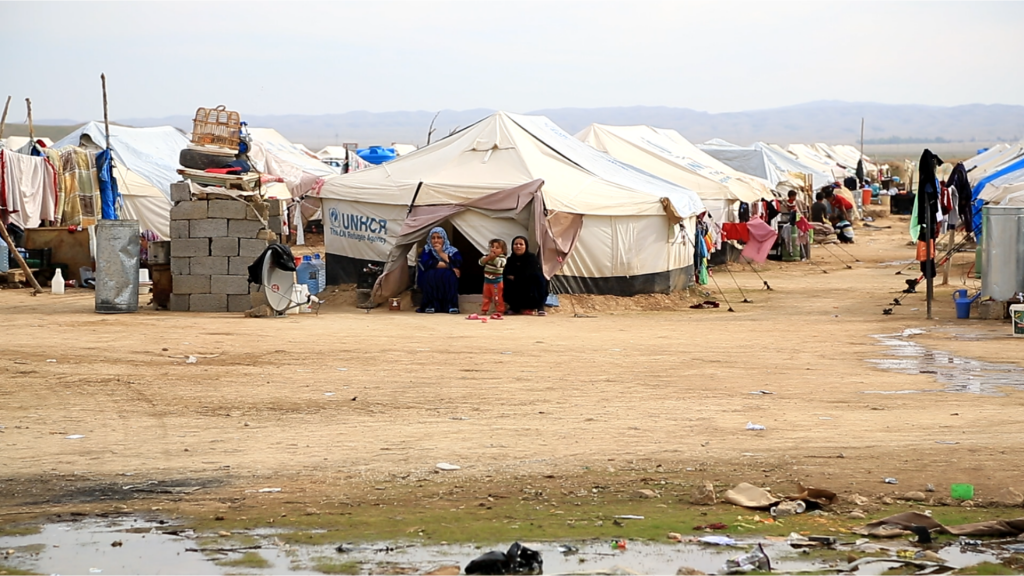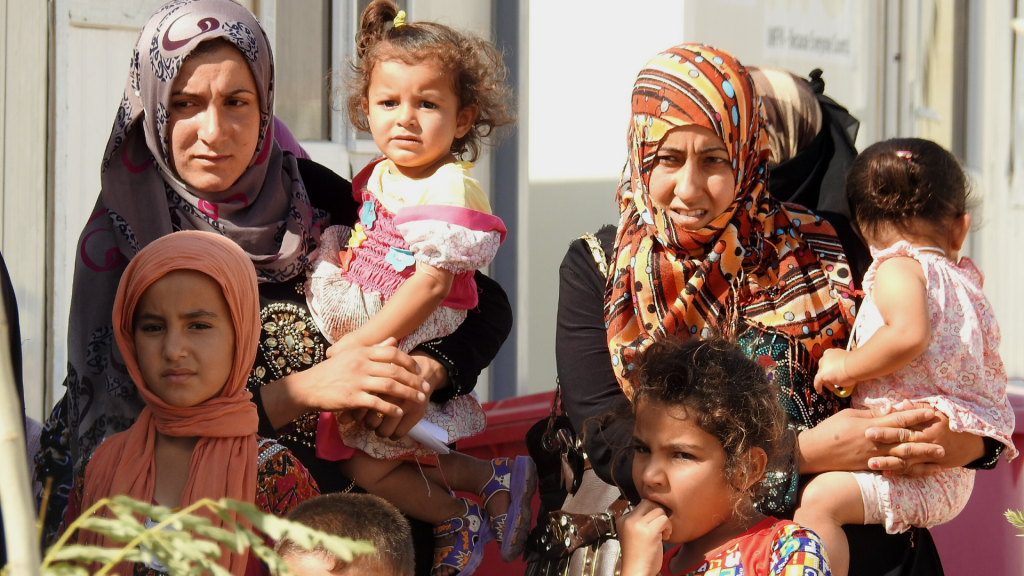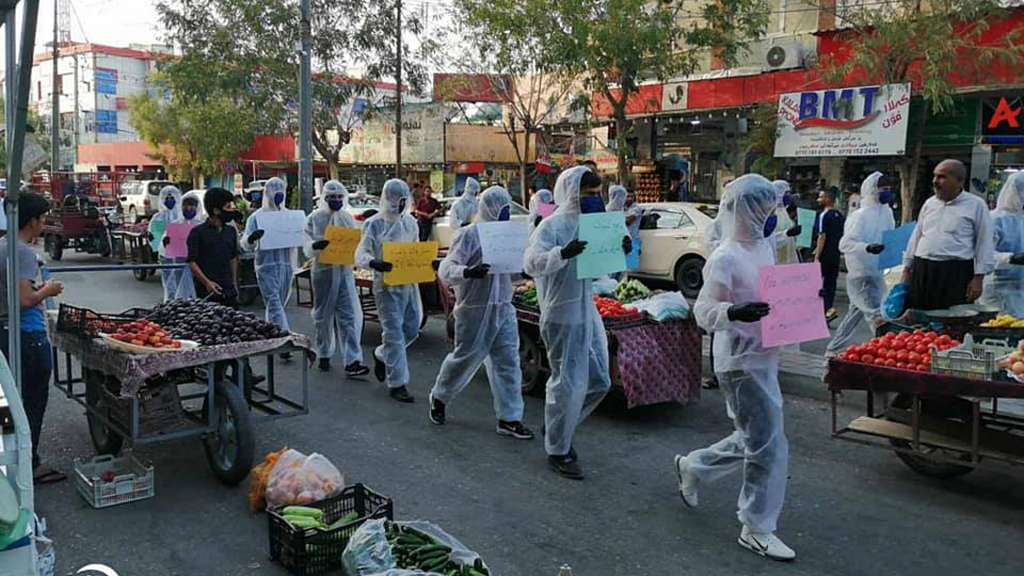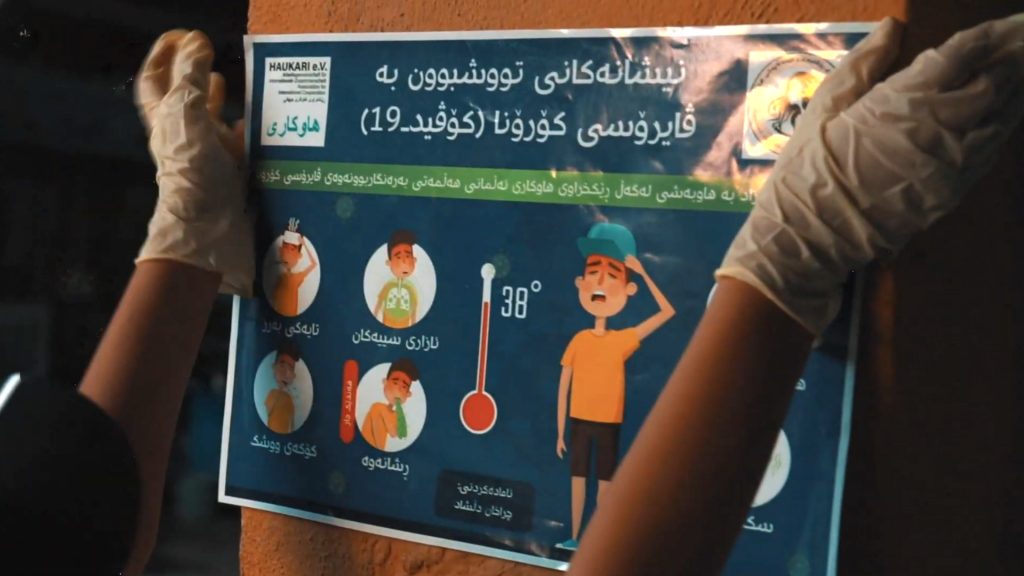Physical Distance – Social Closeness:
Covid-19 Prevention and Emergency Aid Projects
All projects supported by HAUKARI e.V. are implemented by local civil society and governmental/municipal partners and are supervised by local HAUKARI staff. Our partner organizations are interconnected, support each other, and are able to provide quick and unbureaucratic assistance together in acute crisis situations.
Table of Contents
Background
HAUKARI’s approach of responding to local needs often leads to emergency aid projects being carried out in acute crises and emergency situations. In 2014, thousands of people fled Iraq as a result of the fighting against the so-called “IS,” with many seeking refuge in the Kurdish regions. Here, HAUKARI e. V. and local partners supported refugee camps and host communities in providing for and integrating internally displaced persons. In light of the first wave of the coronavirus pandemic in spring 2020, HAUKARI e.V. , together with local partners, prepared to combat the pandemic. Administrative structures, hospitals, and police forces were supplied with hygiene products. In addition, numerous public action days were held, during which awareness-raising was conducted and hygiene products distributed.

Emergency Aid in Refugee Camps
In 2014, hundreds of thousands of Arab, Kurdish, Turkmen, Christian-Assyrian, and Yazidi families fled the so-called “IS,” which swept the region with brutal violence, executions, and death threats against those of different faiths. Most refugees sought safety in the Kurdish provinces of Dohuk and Erbil. Tens of thousands also streamed into the Germian area. Despite great willingness to help, the city administration and civil society were overwhelmed by the task of supplying and integrating these people.

From 2014 to 2017, HAUKARI e.V., together with its local partners, provided emergency aid for refugees in four IDP camps in the Diyala and Garmian regions, as well as in the host community of Kifri. A main component of the work was distributing sanitation, hygiene, and food packages to mothers with small children. In addition, social workers from the KHANZAD Women’s Center cared for families in the camps and offered courses and counseling for women experiencing violence. Spontaneous needs were regularly addressed, from procuring medicine to solving infrastructural problems in the camps.
In the context of cooperation with the host communities in the Germian region, the first partnership with a youth cultural initiative in the city of Kifri also emerged, which later developed into the Youth Culture Centers project.
Supporters and donors of the emergency aid in the IDP camps included Volkshilfe Austria, Neighbors in Need, and medico international.

Physical Distance – Social Closeness: Covid-19 Prevention
From March 2020, the situation in the Kurdish Region of Iraq and Iraq as a whole was largely shaped by the fight against the spread of the coronavirus. Both the Kurdish Regional Government and the Iraqi federal government failed to accompany COVID-19 restrictions with support measures for precarious workers, small businesses, restaurants, shops, etc.
Large segments of the population sank into acute economic crises, worsened by the fall in oil prices and the resulting fundamental financial crisis in the country. In the Kurdish Region of Iraq, the conflict with Baghdad over the transfer of funds from the state budget reignited, with public sector employees not receiving their salaries, leading to the collapse of the public sector and further protests. There were protests and demonstrations by teachers, public employees, shop and restaurant owners- mainly against unpaid wages and COVID-19 restrictions. Domestic violence against women and children increased massively. In this situation, the Kurdish Regional Government warned of a catastrophe and called on civil society groups to support the government in educating the population about COVID-19: since the population no longer trusted the government, civil society voices were needed to encourage compliance with COVID-19 regulations. In the Germian region, the regional administration appealed to NGOs to support the maintenance of public administration: a bizarre situation and a declaration of bankruptcy of governmental institutions.

Against this backdrop, HAUKARI e.V. and its local partners – the KHANZAD Women’s Center and the Garmian team with the youth culture centers Rizgary and Kifri – decided on a two-pronged strategy: On one hand, local public institutions such as hospitals, educational institutions, and state counseling centers for women and families in crisis situations and refugee camps were equipped with protective gear against COVID-19 and supported with transport and infrastructure aid; public buildings are disinfected; and the population was informed about COVID-19 and urged to follow hygiene rules through banners, flyers, and posters in public facilities.
On the other hand, the social and economic impacts of COVID-19 were addressed via video clips, online seminars, and conferences, calling on the government to pay wages, enact relief packages, guarantee fundamental rights, prioritize the issue of violence against women, and curb corruption. Important aspects also included addressing pan-Iraqi, regional, and international issues and experiences to broaden the perspective beyond the Kurdish-Iraqi crisis.
This approach ensured that public health and counseling facilities remained accessible despite the financial crisis. At the same time, it made clear that NGOs are not government agents or taking on government tasks but instead served as watchdogs, drawing attention to grievances and joining protests against the erosion of fundamental rights, corruption, and censorship.
Here are the videos that were produced within the framework of HAUKARI e.V.’s activities:
Appeal for Donations
Rapid and unbureaucratic assistance in crisis situations is rarely covered by project-bound funds. Therefore, we rely on your donations to continue our work in this form. Further information can be found on our donation page.